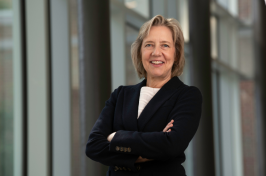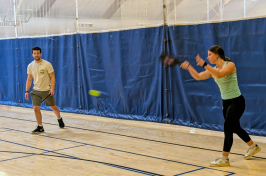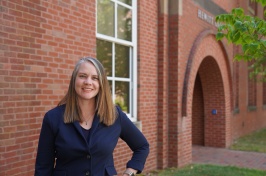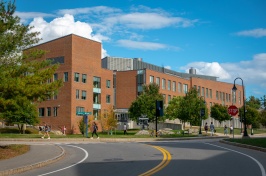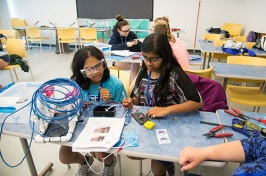UNH Professor Awarded the Honor of 2015 AAAS Fellow
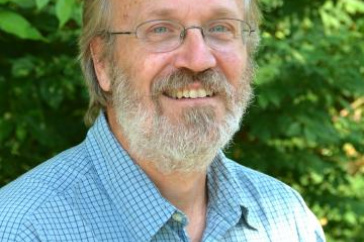
Steve Frolking, research professor of biogeochemistry in the Institute for the Study of Earth, Oceans and Space (EOS) and the department of Earth sciences at the University of New Hampshire, was named a Fellow of the American Association for the Advancement of Science. Credit: UNH
DURHAM, N.H. — University of New Hampshire Earth system science professor Steve Frolking has been named a fellow of the American Association for the Advancement of Science (AAAS). Frolking, a research professor of biogeochemistry in UNH's Institute for the Study of Earth, Oceans and Space (EOS) and department of Earth sciences, is being recognized for his contributions in understanding the Earth's carbon cycle and its relationship to climate. Election as an AAAS Fellow is an honor bestowed upon AAAS members by their peers.
Frolking will be recognized during a ceremony for new fellows Saturday, Feb. 13, 2016, during the 2016 AAAS annual meeting in Washington, D.C. The 347 new fellows from around the globe will be recognized for their scientifically or socially distinguished efforts to advance science or its applications.
"Dr. Frolking's work epitomizes research excellence: he is consistently prolific, his work is highly cited, and it is always of high impact," said Harlan Spence, director of EOS. "AAA fellowship is a noteworthy honor as only a small fraction of one percent of all AAAS members are elected as new fellows each year, and he is clearly deserving of such a significant honor."
According to the AAAS, Frolking is being recognized "for distinguished contributions modeling fluxes of carbon and trace gases through terrestrial ecosystems and their linkages to climate change since the Last Glacial Maximum." His research in this area focuses on understanding the role of northern peatlands (bogs and fens) in the Earth's carbon cycle and climate system over the past 10,000 to 20,000 years. Carbon in the atmosphere is mostly carbon dioxide, a greenhouse gas. Plant growth removes carbon dioxide from the atmosphere, and as peatland plants die and are buried as peat, that carbon dioxide is removed from the atmosphere for thousands of years, which has a cooling effect on the Earth. Frolking has training in physics and biogeochemical cycling. His current research examines the interactions between terrestrial ecosystems, human land and water use, and the Earth's climate system.
"We're pleased and proud that Steve has been recognized for his exceptional climate change modeling work in the Himalayas as well as other parts of the world," said Jan Nisbet, senior vice provost for research at UNH. "For decades, his scholarship has helped secure UNH's role as an international leader in researching the Earth's climate."
The American Association for the Advancement of Science (AAAS) is the world's largest general scientific society, and publisher of the journal Science (www.sciencemag.org) as well as Science Translational Medicine (www.sciencetranslationalmedicine.org) and Science Signaling (www.sciencesignaling.org). AAAS was founded in 1848, and includes 254 affiliated societies and academies of science, serving 10 million individuals. Science has the largest paid circulation of any peer-reviewed general science journal in the world, with an estimated total readership of 1 million. The non-profit AAAS (www.aaas.org) is open to all and fulfills its mission to "advance science and serve society" through initiatives in science policy, international programs, science education, and more. For the latest research news, log onto EurekAlert!, www.eurekalert.org, the premier science-news Web site, a service of AAAS.
The University of New Hampshire, founded in 1866, is a world-class public research university with the feel of a New England liberal arts college. A land, sea, and space-grant university, UNH is the state's flagship public institution, enrolling 13,000 undergraduate and 2,500 graduate students.
PHOTOS AVAILABLE FOR DOWNLOAD
/unhtoday/news/releases/2015/11/images/story-img-7steve_frolking2.jpg
Steve Frolking, research professor of biogeochemistry in the Institute for the Study of Earth, Oceans and Space (EOS) and the department of Earth sciences at the University of New Hampshire, was named a Fellow of the American Association for the Advancement of Science.
Credit: UNH
Latest News
-
September 15, 2025
-
August 21, 2025
-
August 12, 2025
-
August 5, 2025
-
June 25, 2025









